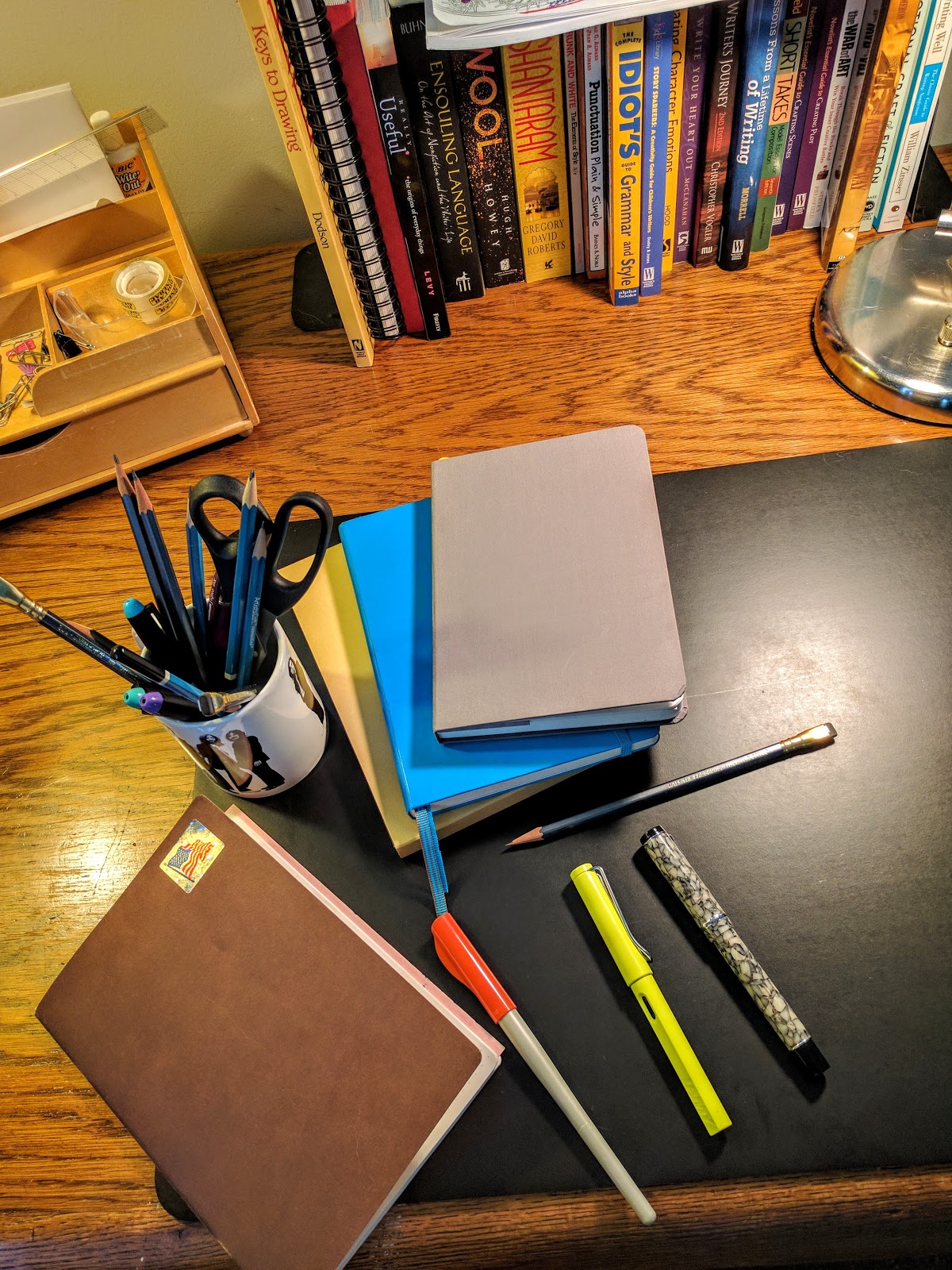Journaling To Health
by Kenneth S. Solomon, D.C.
July 18, 2017
We are too connected. Smartphone, tablet, PC, and laptop. Our hands and brain linked, for too long, each day to digital outlets. Work, play, school, social media, and shopping. Much of our waking day for nearly every age group. Overconnected. Few sustained breaks. Not quite healthy.
Unplugging is impossible. We need a pause, a (temporary) disconnect. A more health promoting alternative. Something Old School and new school.
Journaling, a written (and/or artistic) record of ideas and thoughts, has been around for thousands of years. Dating back to at least 10th century Japan and prevalent throughout history, lending historical and cultural insight and perspective. It is the act of hand writing into a personal notebook for any reason at all. In this last decade, there has been a modern resurgence.
There is a good deal of scientific data and clinical observation highlighting the many health benefits of Journaling. The simple act of writing by hand (cursive or print) and the connections this makes with the brain (and body) provide the foundational blocks for health gains. The paper and pen (or pencil) can be powerful health tools.
Foremost among scientists in this field is James Pennebaker (Writing To Heal) of the University of Texas. He is not alone. Schools like Stanford and Yale have provided insights about the neural connections formed from Journaling. There are many therapists who are having patients journal to improve their mental and emotional health.
Regular Journaling, five minutes (20 minutes is a therapeutic goal) or more each day:
-Strengthens the immune system. Probably by increasing T-lymphocyte production.
-Reduces symptoms (both intensity and frequency) of asthma.
-Reduces symptoms of Rheumatoid Arthritis.
This is just the beginning. The emotional impact of Journaling is enormous. The process of writing down your frustrations and negative emotions makes those less intense. Resolutions become clearer and more attainable. Journaling helps clear the chaos of too many unresolved thoughts in our minds. This allows us to make a better connection with our internal world so we function better in the external one.
We can more easily identify, control and eliminate the toxic thoughts that burden us. Writing reduces the negative effects on our health.
There is still more…. Writing demands eye-hand coordination and the formulation of concrete thoughts. This fully engages the left side (rational and analytic) of our brain while freeing up the creative right side to innovate and emote. Creative mental blocks are removed while analytical abilities are heightened. This promotes clarity of thought and emotional vision. Problem-solving is improved. Cognitive processing is enhanced as we form and write sentences from thoughts and memories.
When we write as opposed to the keyboard:
-Memory improves.
-Critical thinking is more stimulated.
-Problem-solving skills are better focused.
-Improved creativity.
-Less distraction.
And some more…..What you write may be less important to improving health than the writing itself. There are some unexpected benefits. Vocabulary and sentence structure improves. Writing down specific and attainable goals triggers the brain to seek solutions even when you aren’t writing. Communication skills improve. Speaking improves. As creativity improves it will unexpectedly overlap into other endeavors. Self-confidence improves dramatically.
A Yale study with elementary school children showed that print or cursive was superior to keyboarding. Not only were more words produced but more ideas were expressed. Writing unlocked their brains.
When we are Journaling we are present time conscious. We are more mindful. We are unfettered by past mistakes or future concerns. This reduces stress, improves creativity and makes us more analytical. This is a great formula for improved production.
And more……Journaling is fun! All you need is a writing instrument and paper. Of course, you can use your favorite writing instruments, stationery, and notebook. You can add color and drawings. Just look at Instagram and Pinterest. Some journals are works of art. Mine is a mess. But it is mine! I do prefer fountain pens and inks of many colors. Or pencils. Yes, there is a plethora of great pencils out there. You have not experienced greatness until you have used my favorite, the Blackwing 602. The internet is full of Journaling ideas.
Journals can be diaries, goal lists, daily planning, emotional journeys or anything you please in any combination. There are no rules. It is your journal. For you. Just write. A little or a lot. Every day. Writing forces you to slow down. This is healthy. Writing stimulates the cortex of the brain. Dopamine and endorphins are released. Much like the runner, there is “writer’s high”. More clarity reduced stress and better health.
One more thing…..I would be remiss if I didn’t mention a form of journaling that has grabbed the country’s attention.
Ryder Carroll was a 12-year-old boy with ADD and ADHD. Available educational resources were useless for him. He invented his own over the next 20 years. He did well in school and became an application designer. Some friends liked the system he was using and asked to learn. Then more friends. He made a Youtube channel. He was excited when he hit 100 views.
Bullet Journaling (BuJo) was born. There are more than 5 million views of the free BuJo tutorials. It is a system of journaling that is simple and all encompassing. Or minimalistic. Or whatever you prefer. I have incorporated it. It is worth exploring. There are no rules but yours.
Now. Sit down, take a breath and start Journaling To Health!!!
Comments and suggestions are appreciated. If you think this worthwhile please share it with others. If you want to discuss Journaling, writing instruments or stationary I will gladly talk your ear off!
